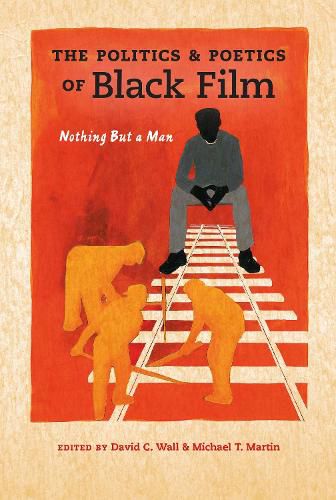Readings Newsletter
Become a Readings Member to make your shopping experience even easier.
Sign in or sign up for free!
You’re not far away from qualifying for FREE standard shipping within Australia
You’ve qualified for FREE standard shipping within Australia
The cart is loading…






Written and directed by two white men and performed by an all-black cast, Nothing But a Man (Michael Roemer, 1964) tells the story of a drifter turned family man who struggles with the pressures of small-town life and the limitations placed on him and his community in the Deep South, an area long fraught with racism. Though unmistakably about race and civil rights, the film makes no direct reference to the civil rights movement. Despite this intentional absence, contemporary audiences were acutely aware of the social context for the film’s indictment of white prejudice in America. To help frame and situate the film in the context of black film studies, the book gathers primary and secondary resources, including the original screenplay, essays on the film, statements by the filmmakers, and interviews with Robert M. Young, the film’s producer and cinematographer, and Khalil Gibran Muhammad, the Director of the Schomburg Center for Research in Black Culture.
$9.00 standard shipping within Australia
FREE standard shipping within Australia for orders over $100.00
Express & International shipping calculated at checkout
Written and directed by two white men and performed by an all-black cast, Nothing But a Man (Michael Roemer, 1964) tells the story of a drifter turned family man who struggles with the pressures of small-town life and the limitations placed on him and his community in the Deep South, an area long fraught with racism. Though unmistakably about race and civil rights, the film makes no direct reference to the civil rights movement. Despite this intentional absence, contemporary audiences were acutely aware of the social context for the film’s indictment of white prejudice in America. To help frame and situate the film in the context of black film studies, the book gathers primary and secondary resources, including the original screenplay, essays on the film, statements by the filmmakers, and interviews with Robert M. Young, the film’s producer and cinematographer, and Khalil Gibran Muhammad, the Director of the Schomburg Center for Research in Black Culture.